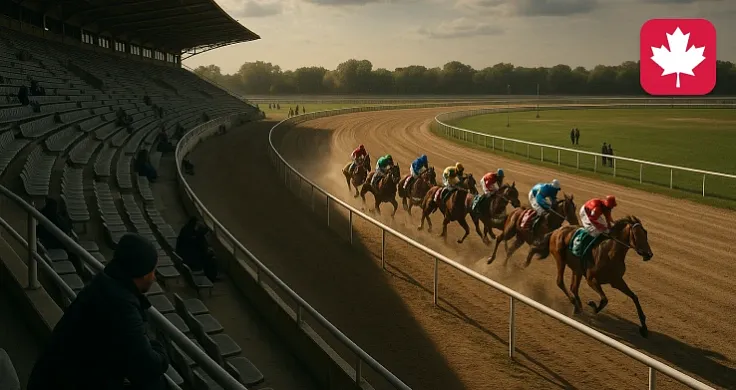
A Tax on Tradition: A Budget Fix or the End of an Industry?
Who's in the Saddle, and Who's Underfoot?
The British horseracing industry is one of the nation's oldest and most deeply rooted sports. But today, it faces a serious threat as the Treasury finalizes consultations on a new, unified tax structure for betting and gaming. Under the proposed changes, bets on horseracing could be taxed at the same 21% rate as online slots or roulette, a significant jump from the current 15%. What seems like a minor adjustment on paper is, in reality, a potential blow to the entire ecosystem.
The government calls it a matter of fairness; the British Horseracing Authority (BHA) calls it a catastrophe. The debate is fueled by arguments about jobs, culture, and the fundamental nature of horseracing, which supporters insist is more than just a gamble – it's part of the national fabric. The statistics back them up: racetrack attendance is on the rise, rural economies depend on the influx of tourists, and prize funds are generated directly from betting revenue.
But the government sees this reform not as a threat, but as an opportunity to simplify tax collection, level the playing field, and boost the Treasury. The goal is understandable, but the method is highly contentious. Equating a calculated bet on a Cheltenham winner with the mindless press of a slot machine button is, to say the least, a flawed comparison.
Linked materials
Why Does Horseracing Deserve Special Consideration?
Horseracing isn’t just a sport; it’s a cornerstone of the rural economy, a source of broadcasting rights, thousands of jobs, and a rich cultural tradition. The issue goes beyond the numbers, though the BHA’s projections are stark, estimating that the reform could cost the industry up to £160 million annually. The core problem is that without a sensible, risk-based tax differentiation, horseracing as a form of socially responsible gambling could simply vanish.
Industry representatives aren't asking for special favors. They are raising a critical question: why doesn't the proposed tax policy account for the degree of risk? The Problem Gambling Severity Index (PGSI) shows that slot machine players are six times more likely to develop problem gambling behaviors than sports bettors. Why, then, should they be taxed at the same rate?
Growing Concern, But Little Action
The horseracing industry is treading carefully – perhaps too carefully. It is trying to avoid a direct confrontation with casino giants, framing its arguments around «fairness» while shying away from bolder proposals, such as the Social Market Foundation's suggestion to raise taxes on online gaming to 42%. This cautious approach is understandable, but it risks eroding their influence. With broader gambling reforms already stalling, the BHA may find itself without the leverage it needs.
This is no longer just a debate about taxes – it's about the very model of gambling that the UK wants for its future. If horseracing is left out of this conversation, it will be excluded from the final equation.
An Alternative Exists – All That's Missing Is the Will
A harm-based taxation model is nothing new. Several European countries, including Belgium, Finland, and Sweden, have already implemented risk-based tax systems. In these nations, tax policy doesn't treat a game of roulette the same as an analytical wager at the racetrack.
In Britain, this approach is still being discussed behind closed doors, if at all. But time is running out. If the horseracing industry doesn't take a proactive stance, its fate will be decided for it.
The greatest threat isn't the tax itself – it's the silence. Without a strong public position and an honest conversation about the risks and benefits of different forms of gambling, horseracing will be dismissed as an archaic relic. Yes, it is part of a tradition, but tradition alone is not a winning argument unless it's backed by a clear strategy.
Conclusion: Taxes as a Litmus Test for the Future
This isn't just about a 6% tax hike, budget figures, or even the sport of horseracing. The real question is this: what kind of gambling market is Britain willing to support? If the only logic is to simplify the system and collect more taxes, the country risks losing not just a source of revenue, but a piece of its cultural heritage.
After all, slot machines, however profitable, don't draw crowds to racecourses or drive tourism to the countryside. Horseracing requires a distinct approach – not as a loophole, but as a form of betting that involves skill, knowledge, and competition.
If this isn't understood now, it will soon be too late.




celese Haha, classic! First they screwed over the players, then the license turned out to be fake, and now they’re trying to undo everything. A total circus. Yeah, everything will just get bought. They’ll pay whoever they need in Curaçao and get a new license. Money rules everything, especially in this industry.



Mangarin4ik The section about how casinos fire VPNs is a gun. I've never thought about WebRTC and the time zone. Author, thank you, you may have just saved my next deposit.







































What's next? Football?
LOL, what did you expect? Online casinos make a ton of money, so of course they leveled the field. Business is business.
So annoying...
This is just ridiculous. Instead of trying to save rural Britain, they're killing off one of the few industries that actually works. Bravo
Oh, stop whining. The rules should be the same for everyone. Betting is betting, even if you try to dress it up as something intellectual.